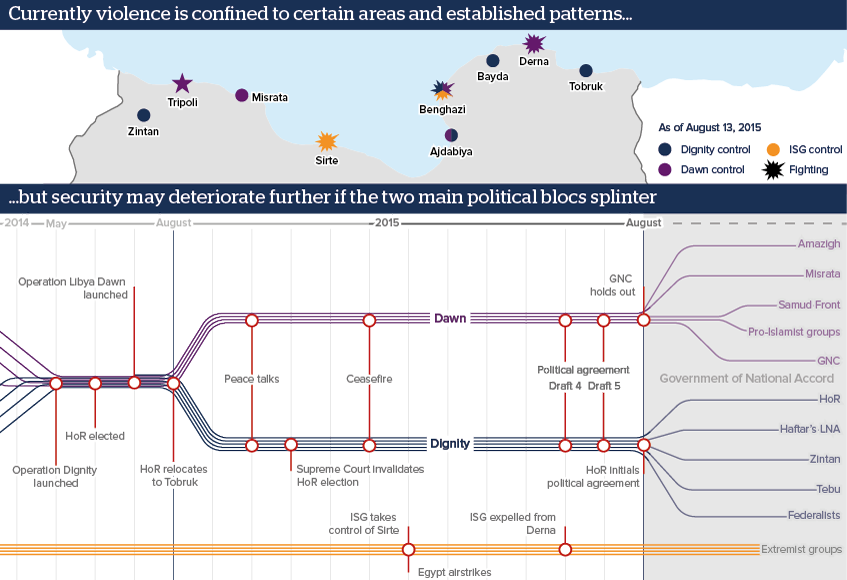Political deal may reshape Libyan militia landscape
The push for a political agreement is exposing rifts among the factions comprising the two political blocs

Source: Reuters, Libya Observer, Oxford Analytica
Outlook
Since September 2014, the UN has been trying to broker an agreement between the two opposing political blocs led by the Tobruk-based House of Representatives (HoR) and the Tripoli-based General National Congress (GNC). However, the push for a Government of National Accord (GNA) is aggravating divisions within the blocs.
Already, General Khalifa Haftar, who supports the HoR and commands the "Libyan National Army" (LNA) armed group, refuses to participate in the negotiations. In the opposing bloc, Misratan militia leader, Saleh Badi, has created a break-away group, the Samud Front. Splintering would risk deterioration in security in areas where control is contested, such as Benghazi, and strategic or profitable infrastructure sites, such as airports and oilfields.
Impacts
- Those who want greater autonomy for eastern Libya ('federalists') may rebel against the GNA if the government moves back to Tripoli.
- The Islamic State group (ISG)'s branch in Libya will aim to take advantage of new hostilities, but will probably struggle to expand.
- Where a political group or bloc has local dominance, it will tend to be able to maintain local security.
- The Amazigh and Tebu minorities have played a limited role in the talks, and will have little incentive to abide by the GNA agreement.
See also
- Unity deal reflects Western goals, not Libyan accord - Dec 18, 2015
- Libya helicopter crash points to rising tensions - Oct 28, 2015
- Libya unity deal will produce patchy stability - Jul 15, 2015
- More graphic analysis